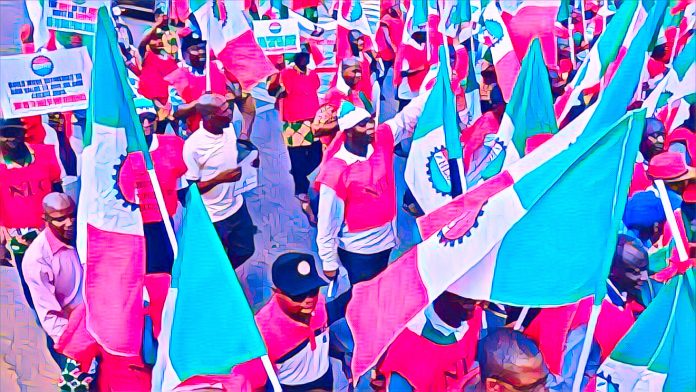Nigeria’s labor unions have declared an indefinite strike starting June 3, 2024, in response to unresolved issues concerning wage increases and working conditions. This decision follows months of negotiations between union leaders and the government, which have failed to yield satisfactory results.
The Nigerian Labor Congress (NLC) and the Trade Union Congress (TUC) jointly announced the strike, highlighting the government’s inability to meet their demands. Union leaders argue that workers have been suffering under stagnant wages and deteriorating working conditions for too long. They emphasized that the strike is a necessary measure to compel the government to take immediate and meaningful action.
The strike will affect various sectors, including healthcare, education, and transportation, potentially crippling public services across the country. Hospitals, schools, and public transportation systems are expected to experience significant disruptions, causing widespread inconvenience for the general populace.
NLC President Ayuba Wabba stated that the government’s failure to address the issues has left them with no choice but to take drastic action. “We have been patient and tried every possible means to resolve these issues amicably, but our pleas have fallen on deaf ears. This strike is our last resort,” Wabba declared.
The government, on its part, has expressed concern over the strike’s potential impact on the economy and the daily lives of Nigerians. In a statement, a government spokesperson urged the unions to reconsider their decision and return to the negotiating table. “We acknowledge the grievances of the labor unions and are committed to finding a resolution. However, an indefinite strike will only exacerbate the current economic challenges,” the spokesperson said.
Economic analysts warn that the strike could have severe repercussions on Nigeria’s economy, which is already grappling with inflation and slow growth. The disruption of public services and the potential loss of productivity could further strain the country’s financial stability.
Amidst the escalating tension, some citizens have voiced their support for the unions, arguing that the government must prioritize the welfare of its workers. “We stand with the labor unions. Our teachers, doctors, and other public servants deserve better pay and working conditions,” said a resident of Lagos.
Others, however, fear the prolonged strike could lead to chaos and further hardship for ordinary Nigerians. “While I understand the unions’ demands, an indefinite strike could paralyze the country. We need a solution that won’t hurt the people,” commented another Lagos resident.
As the strike looms, there is a glimmer of hope that last-minute negotiations could avert the worst-case scenario. Union leaders have indicated their willingness to call off the strike if the government makes a concrete commitment to address their demands.
In these uncertain times, the resilience and determination of Nigeria’s workforce stand as a testament to their pursuit of justice and better living standards. The coming days will be crucial in determining whether a compromise can be reached or if the country will face an indefinite shutdown.
Source: Business Day



